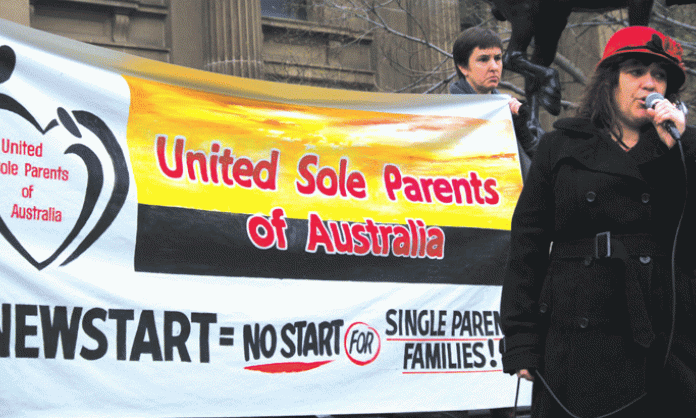Turning eight doesn’t usually mean much. If you’re lucky, it might be worth an extra half an hour of television at night. Maybe it’s when you’re first allowed to walk to the milk bar on your own. Nothing special, it used to be just another stop on the slow march towards counting your age in double digits.
The Australian government has set about fixing all that. No longer an also-ran in the birthday stakes, turning eight is now life-changing for thousands of children and their parents.
Since January this year, the federal Labor government has cut off parenting payments to an estimated 84,000 sole parents because their youngest or only child has turned eight.
Tens of thousands more whose youngest or only child hasn’t yet turned eight are now racing against a clock they can’t beat. “I’ve got a few years left, but as soon as she turns eight, then I don’t know”, says a single mother, looking at her three-year-old, who’s running in circles around us both as we talk. Another with a seven-year-old son describes feeling “as if a cloud of doom is approaching”.
Sole parents forced off parenting payments have been redefined as “job seekers” and told they can apply for Newstart allowance, better known as the dole.
Under the changes, a sole parent on Newstart will receive anywhere between $75 and $110 a week less than if they had remained on the parenting payment. But a shrinking basic income is just part of the picture. Many sole parent families will lose the health care card that gives them access to discounts on medication and utilities. Most will no longer be eligible for the education supplement that was available to help single parents with some of the costs associated with study and training.
Though they are by definition working as the primary carer for their children, single parents on Newstart will also have to juggle parental responsibilities with the laborious and degrading run-around that Centrelink calls “participation requirements”.
The magnitude of the cuts and their disproportionate impact on the living standards of women and their children have been widely attacked. Around 90 percent of people impacted by the changes are women.“There are single people who don’t have children that can’t afford to pay rent on Newstart. How on earth is someone who needs that extra bedroom or two going to survive? Rents have skyrocketed, and it’s no longer as simple as moving out further … people are scrimping and cutting back and cutting back but there’s no future for people who are doing that, there’s no hope”, said Kerry Davies, spokesperson for the Council for Single Mothers and their Children, speaking at a recent rally against the changes.
In Victoria, latest figures show that eviction rates are spiking in many of Melbourne’s outer suburbs. For many sole parents, there is nowhere further out to go. One woman posting to an online forum said she felt fortunate to have found a small country block where she can camp with her children until she can pay down some of her bills.
Minister for families Jenny Macklin has told single mothers to pull their socks up, get a job and “show their children a strong work ethic”. Most women hit by the changes were already in paid work. The government well knows this.
The government also knows that poverty is cutting deeper and deeper into the lives of sole parent families. Its own much maligned Social Inclusion office points to Melbourne University’s latest “Household, Income and Labour Dynamics in Australia” survey, which reports that the number of one parent families in poverty has jumped by 15 percent in the last decade.
Labor has calculated that the lives of sole parents and their children are worth about $728 million in savings to the budget bottom line over the next four years. This is much less than the government has budgeted to spend on “income management” since it was introduced.









